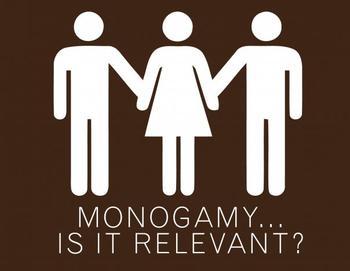A former mistress sent me a link to this article by Richard A. Friedman about infidelity and genes:
‘AMERICANS disapprove of marital infidelity. Ninety-one percent of them find it morally wrong, more than the number that reject polygamy, human cloning or suicide, according to a 2013 Gallup poll.
Yet the number of Americans who actually cheat on their partners is rather substantial: Over the past two decades, the rate of infidelity has been pretty constant at around 21 percent for married men, and between 10 to 15 percent for married women, according to the General Social Survey at the University of Chicago’s independent research organization, NORC.’
(…)
‘Brendan P. Zietsch, a psychologist at the University of Queensland, Australia, has tried to determine whether some people are just more inclined toward infidelity. In a study of nearly 7,400 Finnish twins and their siblings who had all been in a relationship for at least one year, Dr. Zietsch looked at the link between promiscuity and specific variants of vasopressin and oxytocin receptor genes. Vasopressin is a hormone that has powerful effects on social behaviors like trust, empathy and sexual bonding in humans and other animals. So it makes sense that mutations in the vasopressin receptor gene — which can alter its function — could affect human sexual behavior.
He found that 9.8 percent of men and 6.4 percent of women reported that they had two or more sexual partners in the previous year. His study, published last year in Evolution and Human Behavior, found a significant association between five different variants of the vasopressin gene and infidelity in women only and no relationship between the oxytocin genes and sexual behavior for either sex. That was impressive: Forty percent of the variation in promiscuous behavior in women could be attributed to genes. That is surprising since, as Dr. Zietsch points out, there are so many other factors that are necessary for promiscuous encounters, like circumstance and the availability of a willing and able partner. Although this is the largest and best study on this, it’s not clear why there was no relationship between the vasopressin gene and promiscuous behavior in men.’
(…)
‘If you have an Orwellian bent, you’ve probably already imagined the mischief you might do with these two hormones. You could surreptitiously make a potential investor more trusting or encourage a monogamous impulse in a partner who you suspect is cheating. All you need is aerosolized oxytocin or vasopressin, perhaps in a spiked air freshener or perfume. Kidding, of course, but you get the idea.
Sexual monogamy is distinctly unusual in nature: Humans are among the 3 to 5 percent of mammalian species that practice monogamy, along with the swift fox and beaver — but even in these species, infidelity has been commonly observed.
The evolutionary benefit of promiscuity for men is pretty straightforward: The more sexual partners you have, the greater your potential reproductive success. But women’s reproductive capacity is more limited by biology. So what’s in it for women? There may be no clear evolutionary advantage to female infidelity, but sex has never just been about procreation. Cheating can be intensely pleasurable because, among other things, it involves novelty and a degree of sensation seeking, behaviors that activate the brain’s reward circuit. Sex, money and drugs, among other things, trigger the release of dopamine from this circuit, which conveys not just a sense of pleasure but tells your brain this is an important experience worth remembering and repeating. And, of course, humans vary widely in their taste for novelty.
In a 2010 study of 181 young, healthy adults, Justin R. Garcia, then at Binghamton University, found that subjects who carried a variant of one dopamine receptor subtype, the D4 receptor, were 50 percent more likely to report sexual infidelity. This D4 genetic variant has reduced binding for dopamine, which implies that these individuals walk around at baseline feeling less stimulated and hungrier for novelty than those lacking this genetic variant.’
Read the article here.
So monogamy or the lack of it may be just a side effect of the genetic lottery.
And our genes are of course a terrific excuse: “I don’t want to blame my genes, darling, that would be immoral and a tad myopic, but monogamy really is an uphill battle for me. I wish I had your genes.”
For more insightful thoughts about this matter I refer to the selections of aphorisms by psychoanalyst Adam Phillips, titled “Monogamy”, one example:
'Jealousy and passion may be inextricable – each a sure sign of the other – and yet jealousy can outlast desire. Our appetites may be fickle but our sense of entitlement persists. This is the legacy of childhood: having your cake just in case you want to eat it.'
